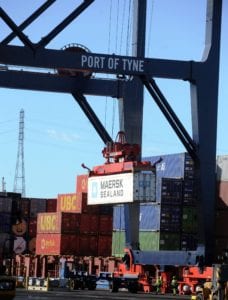The government has launched a new maritime strategy which outlines short, medium and long-term proposals to better position the UK as g global centre of emerging technology and world leader in the maritime industry for the next 30 years.
The Maritime 2050 strategy entails developing technology, people, and infrastructure to ensure the maritime industry in the UK continues to thrive. For example, the UK will also aim to use virtual and augmented reality in seafarer training.
 “The UK will be at the forefront of emerging technology and seafarer training and will capitalise on selling this expertise to companies across the world,” said transport secretary Chris Grayling.
“The UK will be at the forefront of emerging technology and seafarer training and will capitalise on selling this expertise to companies across the world,” said transport secretary Chris Grayling.
“Maritime is a vital UK industry, bringing in £14 billion to our economy as well as providing thousands of new and exciting careers for people across the country,” he added.
The government will look to establish a Maritime Skills Commission to bring together experts to report in the existing and future needs of the industry.
Major UK port, the Port of Tyne, is on board with the strategy: “our vision is fully aligned to the Maritime 2050 strategy and it is our intention to collaborate with government, our customers, the community and the wider transport and maritime sector to ensure that our port continues to be a gateway for trade, skills and investment by playing our part in the future framework,” said Port of Tyne chief executive officer Matt Beeton.






